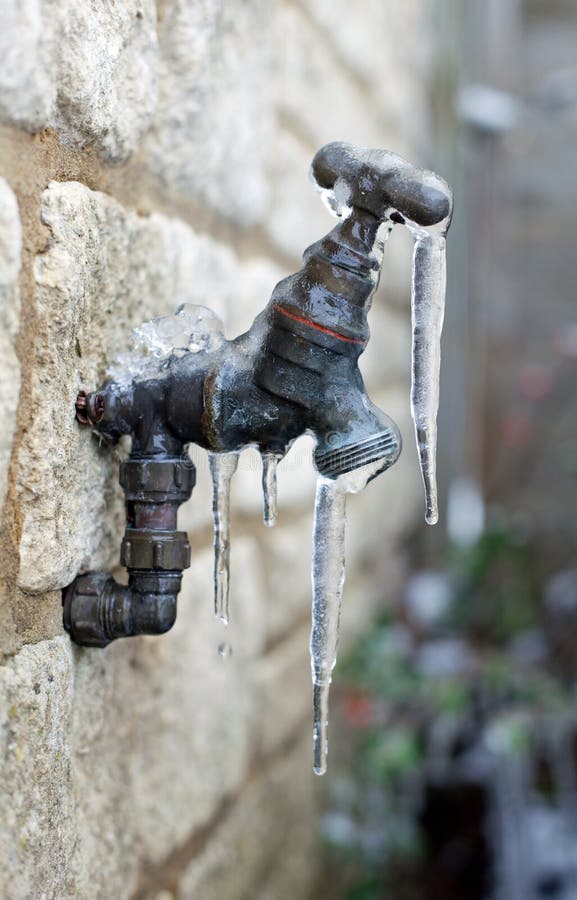The content which follows in relation to How to prepare your home plumbing for winter weather is without a doubt stimulating. Give it a go and draw your own personal assumptions.

Cold weather can wreak havoc on your plumbing, particularly by freezing pipelines. Below's just how to avoid it from occurring and what to do if it does.
Introduction
As temperatures decline, the threat of icy pipelines boosts, possibly leading to costly repair services and water damage. Comprehending just how to prevent frozen pipelines is essential for home owners in chilly environments.
Avoidance Tips
Shielding susceptible pipes
Cover pipelines in insulation sleeves or make use of warmth tape to protect them from freezing temperatures. Focus on pipes in unheated or exterior areas of the home.
Heating methods
Keep interior spaces effectively heated up, particularly areas with pipes. Open up closet doors to enable cozy air to circulate around pipelines under sinks.
How to determine icy pipelines
Search for decreased water flow from taps, uncommon odors or sounds from pipelines, and visible frost on exposed pipes.
Long-Term Solutions
Structural changes
Think about rerouting pipes far from exterior wall surfaces or unheated areas. Add added insulation to attics, cellars, and crawl spaces.
Updating insulation
Invest in high-quality insulation for pipes, attics, and wall surfaces. Correct insulation helps maintain consistent temperatures and reduces the risk of frozen pipelines.
Protecting Outside Plumbing
Garden hoses and exterior faucets
Separate and drain pipes yard hose pipes before winter season. Mount frost-proof faucets or cover outside faucets with shielded caps.
Recognizing Frozen Pipes
What causes pipelines to ice up?
Pipelines freeze when subjected to temperature levels listed below 32 ° F (0 ° C) for extended durations. As water inside the pipelines freezes, it increases, taxing the pipe walls and possibly triggering them to break.
Dangers and damages
Frozen pipes can bring about supply of water disturbances, home damage, and costly repair services. Burst pipes can flood homes and cause extensive architectural damages.
Indications of Frozen Pipeline
Identifying icy pipelines early can stop them from rupturing.
What to Do If Your Pipes Freeze
Immediate activities to take
If you presume frozen pipelines, keep taps available to alleviate stress as the ice melts. Make use of a hairdryer or towels soaked in warm water to thaw pipes gradually.
Final thought
Protecting against frozen pipelines requires positive actions and quick feedbacks. By comprehending the reasons, indicators, and preventive measures, house owners can shield their plumbing during cold weather.
Helpful Tips to Prevent Frozen Pipes this Winter
UNDERSTANDING THE BASICS: WHY PIPES FREEZE AND WHY IT’S A PROBLEM
Water freezing inside pipes is common during the winter months, but understanding why pipes freeze, and the potential problems it can cause is crucial in preventing such incidents. This section will delve into the basics of why pipes freeze and the associated problems that may arise.
THE SCIENCE BEHIND FROZEN PIPES
When water reaches freezing temperatures, it undergoes a physical transformation and solidifies into ice. This expansion of water as it freezes is the primary reason pipes can burst. As the water inside the pipe freezes, it expands, creating immense pressure on the walls. If the pressure becomes too great, the pipe can crack or rupture, leading to leaks and water damage.
FACTORS THAT CONTRIBUTE TO PIPE FREEZING
- Low Temperatures: Extremely cold weather, especially below freezing, increases the risk of pipes freezing.
- Uninsulated or Poorly Insulated Pipes: Pipes located in unheated areas, such as basements, crawl spaces, or attics, are more prone to freezing. Insufficient insulation or lack of insulation altogether exacerbates the problem.
- Exterior Wall Exposure: Pipes running along exterior walls are susceptible to freezing as they encounter colder temperatures outside.
- Lack of Heating or Temperature Regulation: Inadequate heating or inconsistent temperature control in your home can contribute to frozen pipes.
PROBLEMS CAUSED BY FROZEN PIPES
WHY CERTAIN PIPES ARE MORE PRONE TO FREEZING
- Pipe Bursting: As mentioned earlier, the expansion of water as it freezes can cause pipes to burst, resulting in significant water damage.
- Water Damage: When pipes burst, it can lead to flooding and water damage to your property, including walls, ceilings, flooring, and personal belongings.
- Structural Damage: Prolonged exposure to water from burst pipes can compromise the structural integrity of your home, leading to costly repairs.
- Mold and Mildew Growth: Excess moisture from water damage can create a favorable environment for mold and mildew growth, posing health risks to occupants.
- Disrupted Water Supply: Frozen pipes can also result in a complete or partial loss of water supply until the issue is resolved.
https://busybusy.com/blog/helpful-tips-to-prevent-frozen-pipes-this-winter/
- Location: Pipes located in unheated or poorly insulated areas, such as basements, crawl spaces, attics, or exterior walls, are at higher risk of freezing.
- Exterior Pipes: Outdoor pipes, such as those used for irrigation or exposed plumbing, are particularly vulnerable to freezing as they are directly exposed to the elements.
- Supply Lines: Pipes that carry water from the main water supply into your home, including the main water line, are critical to protect as freezing in these lines can affect your entire plumbing system.
- Underground Pipes: Pipes buried underground, such as those connected to sprinkler systems or outdoor faucets, can be susceptible to freezing if not properly insulated.

Hopefully you enjoyed our article about Preventing and dealing with frozen pipes. Thank you for spending some time to read through our short article. Enjoyed reading our write-up? Please quickly share it. Help other people find it. We treasure your readership.
Click Here
Comments on “Avoiding Your Pipes from Freezing: Best Methods”